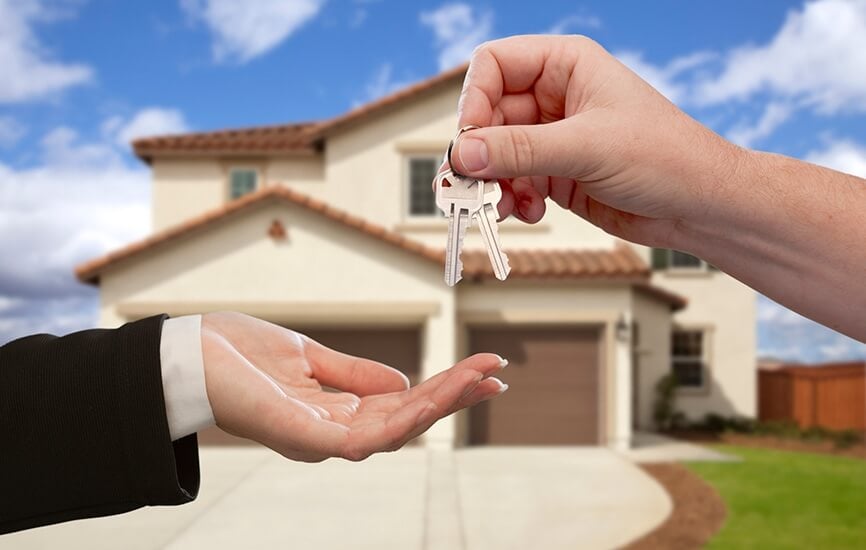The decision as to whether to rent or buy is a perennial problem if ever there was one. For many of us, the process of moving out in itself symbolises the transition to adulthood. For many more, it is buying a home that really and truly means you’ve made it, and who eagerly await the moment they can jump onto the property ladder. However, simply buying a home isn’t always that straightforward.
House prices vs rent prices
For example, the price of the average UK home has risen in the past decade. In London, this equates to nearly a 70% rise in 10 years. Whilst for the first time in at least five years according to Rightmove, rents have dropped in Britain by the end of summer 2017. Outside of London, rents dropped by 0.2% in the months from June to September.
However, London itself still remains one of the most expensive cities in the world to rent in. In other words, either buying or renting is going to be of considerable cost and there are pros and cons to both. Let’s weigh them up.
The importance of freedom?
Both renting and buying provide you freedom. However, the way in which each option gives you this freedom differs entirely, with advantages and disadvantages to both. Here is a short summary:
Renting
If you’re tired of living at home or with annoying parents or siblings, getting out and renting is a quick way to get a place and make it your own.
With renting, you are signed up to a fixed contract, meaning you have the option to leave fairly quickly when the minimum tenancy period expires without having to worry about a costly mortgage to pay for.
The option to move to another city or country entirely can be achieved fairly quickly as a result, so you have wide range of choices of places to live.
If your personal circumstances change, renting gives more flexibility. If you need to change jobs or anticipate that you will have less money than previously, you can look for somewhere cheaper to rent without being tied down to the responsibility of a mortgage.
Renting might give you the chance to live in an area you’ve always dreamed of, but couldn’t otherwise afford to live in if the only option was buying.
Not having to pay huge upfront costs for a house or flat (usually a month’s rent is required, but this is considerably less than a house deposit), means decisions to move can be made swiftly.
Buying
If you buy a house, then you have the freedom to make home improvements you would find difficult to make rent. Want to put up some shelves in your bedroom, paint each room in all the different colours of the rainbow, or even paint a mural dedicated to your love of cats? Well, you can do just that if you really wanted! Obviously, improvements are within reason, and perhaps not as extreme or silly as those previously listed, but not having to ask permission from a landlord for making alterations is a definite advantage.
Many landlords aren’t avid fans of tenants having pets in their properties and are extremely strict with rules regarding them. In the worst case scenario, if caught with a pet in the property this could lead to eviction. With buying, the choice is up to you! Buy a goat if you like! (or maybe not).

Whilst it may take longer to save for a house deposit, it provides an investment for the future that renting doesn’t. It is often said that paying rent is like letting money going down the drain after all. The house could accumulate in value in later years enabling you greater freedom in the future if you should decide to sell, allowing extra money to spend on whatever you would like! This could be anything from a new bigger home, holidays or a more comfortable retirement.
The Guardian writes that house prices are strong at the moment, going up the fastest in the last 8 months of 2017. You always have lots of options as a homeowner to do improvements and increase the value of your property. Whether you use construction finance or just through your own savings, things like adding a nice garden can increase the value by 10%, a conservatory is another 10%, a loft conversion with two rooms is around 20% and a basement with as much as 30% – helping you really maximise the value of your home.
Can you afford to buy?
If you do decide to buy, it’s incredibly important that you work out if it’s possible that you can afford it in the first place. It isn’t just the deposit that you will need to pay for, there are many costs incurred when buying a property that aren’t included when renting. Such as
- Stamp duty
- Removal costs
- Maintenance if anything breaks down – such as boilers or a leaking roof.
- Survey cost
- Legal costs
- Monthly bills – gas, electric, phone bills etc.
- If interests rates increase, your mortgage repayments will rise too.
- Estate agency costs
- If you are moving in with a partner and separate, this could become very expensive.
First-time buyers have been given a lifeline with the new budget rulings with regards to stamp duty. If its your first mortgage, you won’t pay any stamp duty on the first £300,000 of your property value, allowing you to make a huge saving and will help around 95% of new homebuyers.
What is the right decision for you?
Evidently, both buying and renting have their pros and cons, and these will likely depend on your needs at the time of making such a decision. For some, buying property isn’t in their interest, and nor will it ever be, whilst for others owning a property is their lifelong dream. Whichever you choose, deciding where you live is one of the most important decisions you will make, and you must think thoroughly all of the options available to you, as well as what is possible for you to realistically afford.
